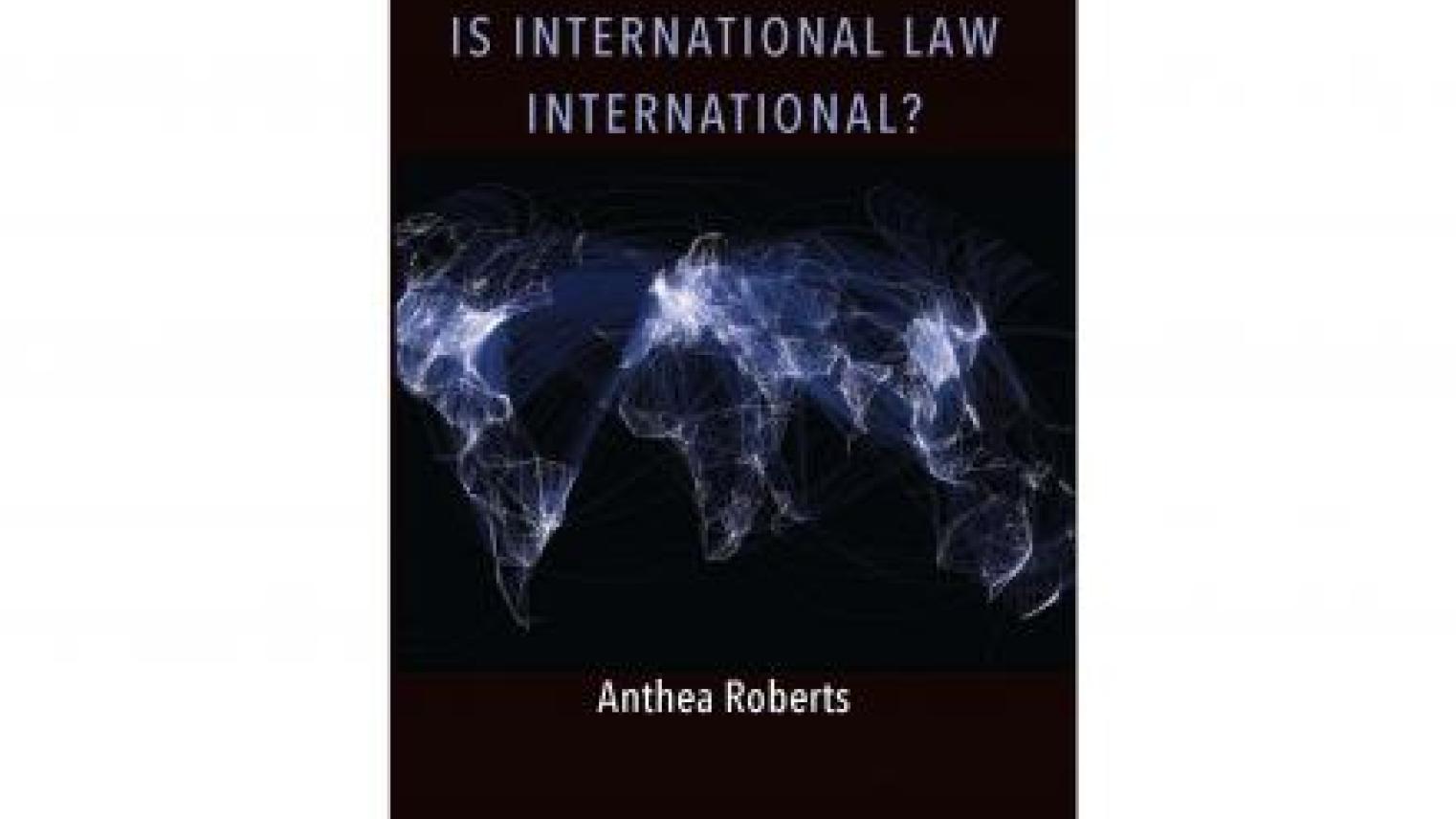Is International Law International?

ANU’s Anthea Roberts publishes landmark book exploring the national biases in international law.
“I am very serious when I say that nothing in the field will be quite the same after this book has been published. It is such an eye-opener.” MARTTI KOSKENNIEMI, Professor of International Law, University of Helsinki, and Director, Erik Castrén Institute of International law and Human Rights, Finland
Sample the book for free
Is International Law International? Preface and Chapter 1 (2MB)
Is International Law International? Chapter 3 (14MB)
What is the book about?
The book takes the reader on a sweeping tour of the international legal field to reveal some of the patterns of difference, dominance, and disruption that belie international law’s claim to universality.
Anthea Roberts shows how international lawyers in different states, regions, and geopolitical groupings are often subject to distinct influences that affect how they understand and approach international law.
When asked to reflect on the professional community of international lawyers, Oscar Schachter memorably called it an “invisible college” whose members were “dispersed throughout the world” yet “engaged in a continuous process of communication and collaboration.” Anthea Roberts argues that it might be better to understand the transnational field of international law as comprising a “divisible college” of international lawyers.
International law academics in different states often have distinct profiles based on where they studied, whom they teach, which languages they use, what and where they publish, and how they engage with practice. Rather than a single community, the field consists of separate, though overlapping, communities, often demonstrating distinct approaches, reference points, hierarchies, areas of expertise, and spheres of influence.
How does this apply in the real world?
The divisible college of international lawyers manifests itself in contemporary controversies, such as debates about Crimea and the South China Sea.
In the case of Crimea, it was starkly illustrated by the different responses by Western and Russian international lawyers to Crimea’s annexation by, or reunification with, Russia in 2014. As a general rule, these two groups accepted different accounts of the facts, put forward different understandings of the law, and reached diametrically opposed conclusions on both the legality and legitimacy of what transpired. While Western international lawyers typically condemned Russia’s illegal annexation of Crimea, Russian international lawyers generally celebrated Crimea’s exercise of self-determination and lawful decision to reunify with Russia.
Part of what was striking about these debates was that they largely occurred in parallel silos: Russian international lawyers primarily published in Russian in Russian journals while citing other Russian scholars, whereas Western international lawyers primarily published in English in Western outlets while citing other Western scholars. These two communities of international lawyers found very few points of connection and commonality. They often did not communicate with each other and, even when they did, they rarely found common ground. Instead, they largely existed in two separate communities with their own understandings of the law and facts.
Why is this important?
As the world moves past an era of Western dominance towards multiple zones of power, it is imperative for international lawyers to understand the perspectives and approaches of those coming from diverse backgrounds.
By taking readers on a comparative tour of different countries’ approaches to international law, the author encourages them to see the world through the eyes of others - an essential skill in this fast changing world of shifting power dynamics and rising nationalism.
“This book is a must-read for every international lawyer and negotiator.” ANNE VAN AAKEN, Professor for Law and Economics, Legal Theory, Public International Law, and European Law, University of St. Gallen, Switzerland
Where can I buy the book?
30% off discount voucher (511 KB)
Purchase the book from Oxford University Press
What are people saying about the book?
A review by the internationally renowned Professor Samual Moyn from Yale Law School: The Parochialism of American Cosmopolitanism, was published on Lawfare, which is the top US national security blog that has been described by the US Press as “required reading in Trump’s America.”
About the author
Anthea Roberts is a specialist in public international law, investment treaty law and arbitration, and comparative international law. Prior to joining the ANU, Anthea was an Associate Professor at the London School of Economics, a Visiting Professor at Columbia Law School and a Visiting Professor at Harvard Law School. She is also currently a Visiting Professor on the Masters of International Dispute Settlement at the Graduate Institute/University of Geneva. In 2017, Anthea will serve as one of the two inaugural Legal Fellows for the Australian Department of Foreign Affairs and Trade as part of their new Diplomatic Academy.